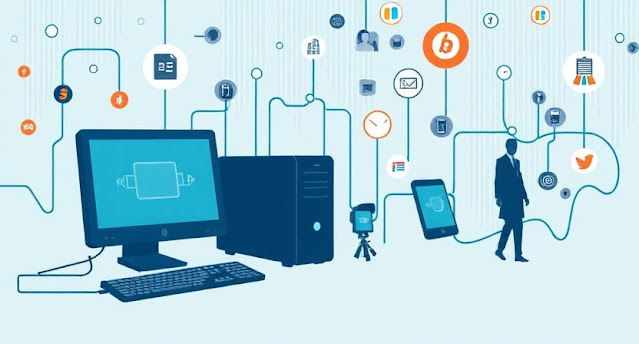Introduction: Technology has come a long way in the past few decades, transforming every aspect of our daily lives. From smartphones to artificial intelligence, we are witnessing rapid innovations that are not only revolutionizing industries but also shaping the future of humanity. This post takes a closer look at the evolution of technology and how it is impacting various sectors.
 |
| The Evolution of Technology |
The Early Days of Technology: The Beginnings of Innovation
In the early days of human history, technology was largely defined by simple tools and inventions, such as the wheel, fire, and early forms of communication like the printing press. The industrial revolution in the 18th and 19th centuries marked a major turning point, with advancements in machinery, transportation, and mass production.
The 20th century saw exponential growth in technological innovations, including the invention of the computer, the development of the internet, and the advent of mobile phones. These breakthroughs laid the foundation for the digital age we now live in.
 |
The Early Days |
The Rise of the Digital Age: Computers, Internet, and Smartphones
The development of personal computers in the 1970s and 1980s, followed by the creation of the internet, marked the beginning of the modern digital age. Computers became more affordable, and the internet made global communication faster and more accessible.
In the 2000s, the smartphone revolution began, changing how we live, work, and connect. Smartphones, powered by mobile operating systems like iOS and Android, have made tasks like browsing the web, shopping, communicating, and working on the go easier than ever. Mobile technology continues to evolve, with faster processors, better cameras, and new capabilities.
 |
Smartphone Revolution |
Artificial Intelligence and Automation: The Future of Technology
Today, one of the most exciting and rapidly growing areas of technology is artificial intelligence (AI). AI is transforming industries from healthcare to finance, allowing machines to perform tasks that once required human intelligence, such as speech recognition, decision-making, and even diagnosing medical conditions.
Automation is also changing how we work. Robotic Process Automation (RPA) and AI-powered tools are taking over repetitive tasks, streamlining workflows, and increasing productivity across businesses. For instance, in manufacturing, robots are used to assemble products more efficiently, while in customer service, chatbots are handling routine queries.
 |
Artificial Intelligence |
Technology in Everyday Life: Smart Homes and Wearable Devices
The integration of smart technology into our homes and daily routines is one of the most visible changes in the 21st century. Devices like smart thermostats, voice assistants (Amazon Alexa, Google Assistant), and security cameras have made it easier to control our environment with the touch of a button or a simple voice command.
Wearable devices like smartwatches and fitness trackers are also gaining popularity. These devices not only tell the time but also monitor health metrics, track fitness goals, and keep us connected throughout the day.
The Future of Technology: What’s Next?
Looking ahead, the future of technology is both exciting and unpredictable. Some of the areas we can expect to see massive growth in include:
- Quantum Computing: Quantum computers have the potential to solve problems far more quickly than today’s traditional computers, which could revolutionize fields like cryptography, medicine, and space exploration.
- Blockchain and Cryptocurrencies: Blockchain technology has the ability to disrupt industries such as banking, finance, and supply chain management. Cryptocurrencies like Bitcoin and Ethereum have already begun to change the way we think about money.
- Augmented Reality (AR) and Virtual Reality (VR): These technologies are transforming gaming, entertainment, and education. In the future, AR and VR could provide fully immersive experiences in a variety of industries, from healthcare to retail.
Conclusion: Embracing Technological Progress
The evolution of technology has fundamentally changed the way we live, work, and interact. From the early days of simple tools to the advanced technologies of today, we have witnessed remarkable progress that has shaped our world. As we look to the future, it’s clear that technological advancements will continue to drive innovation and open up new possibilities.
Staying informed about the latest tech trends and embracing new technologies is key to thriving in this rapidly changing world. The future is now, and it’s up to us to adapt and make the most of the opportunities technology brings.







0 Comments